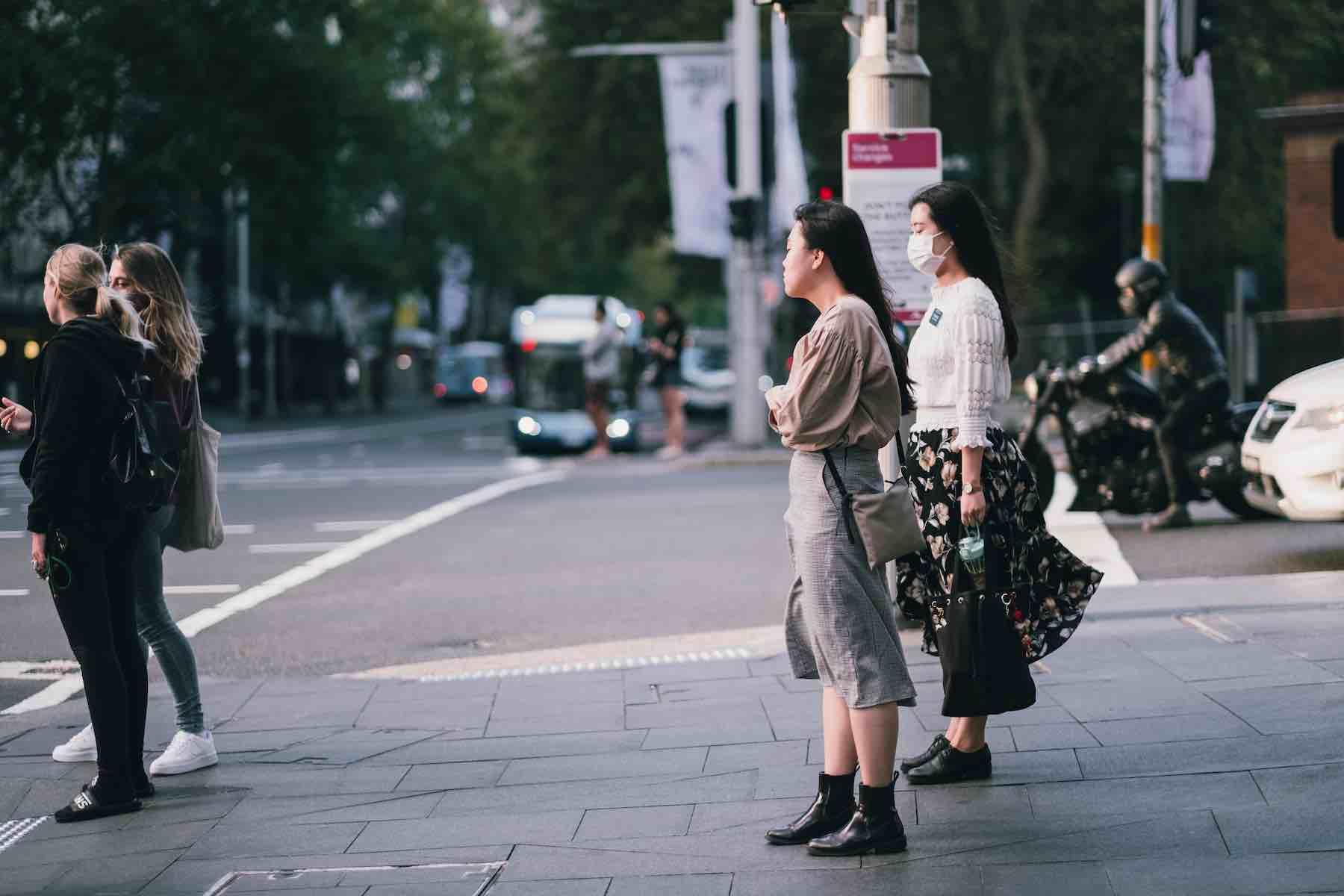Reactions to stressful situations
Everyone reacts differently to stressful situations. How you respond to the current outbreak can depend on previous experiences, personality, mental health condition and socioeconomic factors. In general, people are highly resilient to stress. Think about it as a psychological immune defense. In the current situation most people are appropriately concerned, maybe even worried and stressed. But they will get through this without experiencing debilitating anxiety.
People less resilient to stress
A proportion of people are not as resilient to stress due to pre-existing mental health conditions, like anxiety disorders or emotional problems. We can call those people at higher risk of suffering from the psychological pandemic. They will respond with excessive, debilitating anxiety.
Other groups that may respond more strongly to the stressful situation include older people and people with chronic diseases, who are at higher risk for COVID-19. Children and teens, and those working with people affected by COVID-19, like doctors and other health care providers, or first responders might also react more strongly to the situation.
The stress might cause changes in sleep or eating patterns, difficulties in concentrating, worsening of chronic health problems and increased use of alcohol, tobacco, or other drugs.
What’s adaptive coping?
An example of adaptive coping (or normal coping) is to pay attention to credible news sources and avoid websites devoted to conspiracy theories or rumors. It is to follow the guidelines of health authorities, have a two-week supply of food and toiletries, and be prepared for the possibility of self-isolation.
What’s excessive coping?
An example of excessive coping is someone who’s worried all the time, to the point where it is hard to carry out day-to-day activities and responsibilities. It may cause problems in relationships, at work, or in other important areas.
Some people are constantly checking their own body temperature or watching the news and social media for updates, getting alarmed by the images they see. Other reactions are panic buying and stockpiling supplies.
A more serious reaction to the outbreak is something called xenophobia. Below follows a description of the psychological mechanism behind these behaviors. The intent is to make people aware of why people are acting in certain ways, and therefore become better equipped to prevent and stop destructive behaviors.
You have probably heard of the term xenophobia. It can be explained as an irrational fear of foreigners or anything foreign. It differs from racism in the sense that it’s based on the perception that the other person is from outside the community or nation, rather than physical characteristics.
Some people get xenophobic during disease outbreaks. To understand this reaction it is helpful to have knowledge about a concept called behavioral immune system. It’s based on the idea that our biological immune system is not sufficient to help us avoid infections, because we can’t see things like microbes, bacteria or viruses.
The behavioral immune system is a psychological system that enables us to detect pathogens by looking at cues. If a person has to go to a dirty restroom, that might activate the behavioral immune system. We try to touch as little as possible to avoid contamination.
This system can be set off by foreign people. It evolved over time because foreigners were typically sources of dangerous infections. When two groups intermingle, one group might carry an infection that the other group has never encountered, and therefore has no natural immunity to. This has happened several times throughout history. In a sense, evolution wired us to be cautious around foreigners to ensure survival of the species. But the fear is no longer necessary for our survival since our society today is much more heterogeneous. Still, there are people reacting with a strong fear of foreign people, especially during outbreaks like corona. This fear is irrational and is called xenophobia. People who feel that they are highly vulnerable to disease are more likely to respond with xenophobia.
Panic buying and stockpiling
Panic buying and stockpiling supplies are also examples of behaviors that people might engage in under stressful situations. Everyone is being told that they need to stock up for two weeks of self isolation. That’s not something we normally do, so we might not be aware of what we actually need. Some people will over-purchase supplies because it makes them feel prepared and in control. This triggers other people to over-buy since we interpret danger in the situation based on how other people are reacting. This phenomenon is called herd instinct. It’s when we stop thinking logically and start doing what everyone else is doing. So, if everyone else is panic buying toilet paper, people will follow the herd and do the same, even if it is irrational. And all of the sudden there will be a shortage of toilet paper which will fuel even more panic among people.
As you can see there are psychological reactions to this current situation that can be explained by evolution and how we are wired. But our systems and feelings can be deceiving, a relic from another time in human history. Knowing this might help us use our rational mind even though our instincts might tell us differently.
Social distancing
Social distancing is a non pharmaceutical infection-control action intended to stop or slow down the spread of a contagious disease, in this case COVID-19. In practice it means keeping a safe distance (approximately 6 feet) from others and avoiding gathering spaces such as schools, churches, concert halls and public transportation.
Psychologists’ research has found that during a period of social distancing, people might experience stress, anxiety, anger and depression.
The psychological effects of social distancing
As it stands now people are asked to stay home and limit social contact, and they will likely be cut off from their regular routines for indefinite time. A reduction of meaningful activities and social engagement, financial strain from being unable to work, and a lack of access to typical coping strategies (e.g. going to the gym or hanging out with friends) can affect our mental health.
Anxiety
It is not uncommon to experience anxiety. Many of us are worried about ourselves or family members getting sick. We might also worry about spreading the virus to others. It is also normal to have concerns regarding whether there is enough food, medicine and supplies to last the duration of the pandemic. And as we take time off work it is natural to be worried about finances and how to provide for the family. Due to this some will experience sleeping problems or have a hard time focusing on daily tasks.
Depression and boredom
On our second week of home shelter and/or working from home many of us might be feeling lonely, sad, low and bored. If you fall in the category of extroverts it can be even harder since you are energized by being around other people.
Anger, frustration or irritability
Being isolated or in quarantine can be perceived as a loss of personal freedom. Don’t be surprised if you experience anger, frustration or even resentment toward those who have issued the order. Focusing on the altruistic reasons for social distancing, quarantine or isolation can help relieve stress and anger.
How our mental health affect our immune system
Some studies indicate that stress and anxiety may weaken our immune system, which can leave us more susceptible to infections and illnesses.
It implies that social distancing can cause psychological and physical health risks that actually make us more vulnerable to what we are trying to avoid, in this case, COVID-19. That is one of the reasons some experts want to change the term social distancing to physical distancing. That means reducing the physical contact while maintaining the social connections that help us feel good and stay healthy. The challenge is to find a way to stay socially connected while maintaining a safe physical distance.
Vill du prata med någon av oss psykologer?
Hör av dig så återkopplar vi och hittar en tid som passar dig.
Posted av Julie Franzén - maj 7, 2020
Hej! Jag har arbetat som psykolog sedan 2011 inom barn- och ungdomspsykiatrin och på vårdcentral. Sedan 2016 är jag privatpraktiserande psykolog...
Mer från denna användare
Mer inom denna kategori








